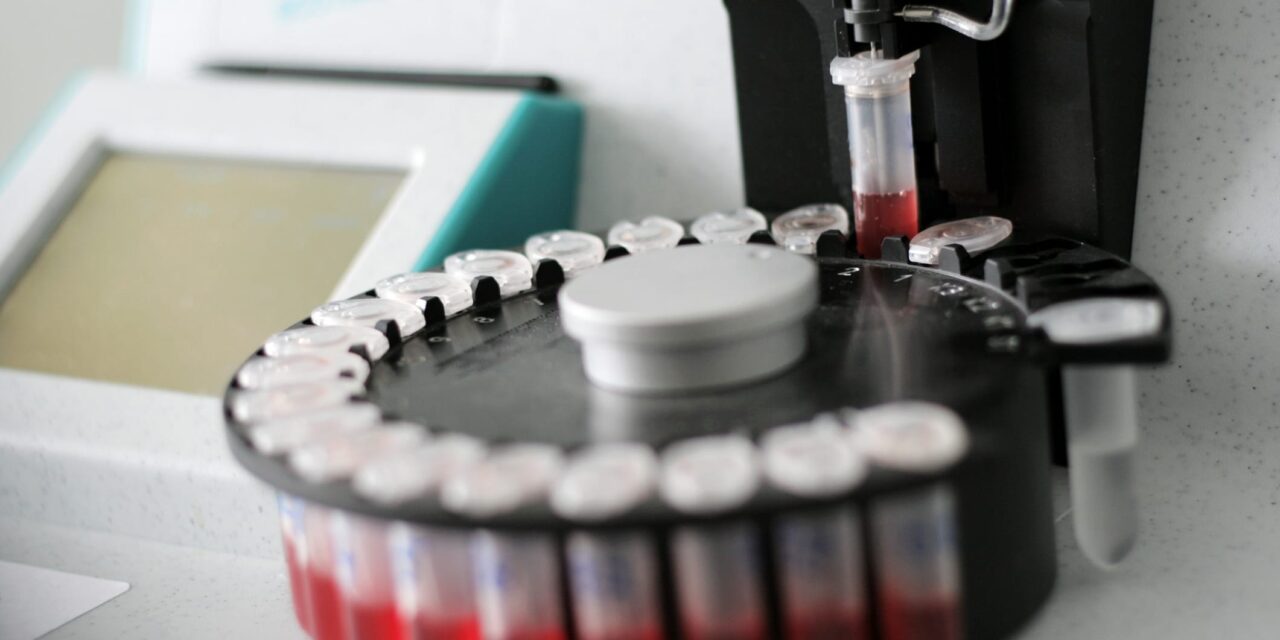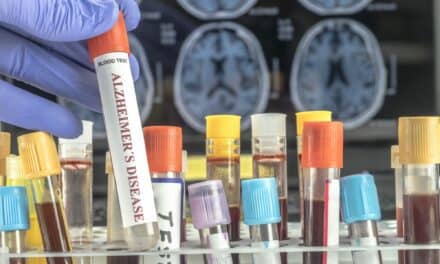New Alzheimer’s Association guideline outlines evidence-based recommendations for using BBM tests in diagnosing patients with cognitive impairment.
The Alzheimer’s Association released its first clinical practice guideline on the use of blood-based biomarker (BBM) tests. The guideline is being published in Alzheimer’s & Dementia®: The Journal of the Alzheimer’s Association.
The clinical practice guideline provides evidence-based, brand-agnostic recommendations to support more accurate and accessible diagnosis of Alzheimer’s using blood-based biomarker tests. The recommendations are linked to a systematic review and will be updated regularly as evidence evolves, according to the Alzheimer’s Association.
“For the first time, we have a rigorously evidence-based guideline that empowers clinicians to use blood biomarker tests confidently and consistently,” says Maria C. Carrillo, PhD, Alzheimer’s Association chief science officer and medical affairs lead and a co-author of the guideline, in a release. “Adoption of these recommendations will lead to quicker, more accessible, more accurate diagnoses—and better outcomes for individuals and families affected by Alzheimer’s.”
Recommendations in the New Clinical Practice Guideline
The recommendations in the new clinical practice guideline—both of which apply only to patients with cognitive impairment being seen in specialized care for memory disorders—are:
- BBM tests with ≥90% sensitivity and ≥75% specificity can be used as a triaging test, in which a negative result rules out Alzheimer’s pathology with high probability. A positive result should also be confirmed with another method, such as a cerebral spinal fluid (CSF) or amyloid positron emission tomography (PET) test.
- BBM tests with ≥90% for both sensitivity and specificity can serve as a substitute for PET amyloid imaging or CSF Alzheimer’s biomarker testing.
The guideline cautions that there is significant variability in diagnostic test accuracy and many commercially available BBM tests do not meet these thresholds.
“Not all BBM tests have been validated to the same standard or tested broadly across patient populations and clinical settings, yet patients and clinicians may assume these tests are interchangeable,” says Rebecca M. Edelmayer, PhD, Alzheimer’s Association vice president of scientific engagement and a co-author of the guideline, in a release. “This guideline helps clinicians apply these tools responsibly, avoid overuse or inappropriate use, and ensure that patients have access to the latest scientific advancements.”
Compared to standard-of-care PET imaging and CSF tests, blood-based biomarkers are typically less costly, more accessible, and more acceptable to patients, according to the Alzheimer’s Association. The guideline emphasizes that BBM tests do not substitute for a comprehensive clinical evaluation by a health care professional and should be ordered and interpreted by a health care professional in the context of clinical care.
Recommended Blood-Based Biomarker Tests
For this initial iteration of the guideline, the BBMs included plasma phosphorylated-tau (p-tau) and amyloid-beta (Aβ) tests measuring the following analytes: p-tau217, ratio of p-tau217 to non-p-tau217 ×100 (%p-tau217), p-tau181, p-tau231, and ratio of Aβ42 to Aβ40. The various BBM tests measure abnormal forms of either amyloid beta or tau protein, the two biomarkers associated with Alzheimer’s disease. Forty-nine observational studies were reviewed, and 31 BBM tests were evaluated.
The panel determined that endorsing specific tests was premature, opting for a brand-agnostic, performance-based approach that blinded panel members to the tests they were evaluating to minimize bias. This aims to ensure the guideline’s credibility, durability, and actionability. According to the panel: “Ranking or endorsing specific tests is premature at this time. Instead, test accuracy data and accuracy judgments reported in this guideline are meant to serve as a resource for clinicians…to aid them in choosing which test(s) to order.”
The panel formulated two recommendations and one Good Practice Statement for the use of BBM tests in the diagnostic workup of patients with objective cognitive impairment being seen in specialized care.
- Recommendation 1 — In patients with objective cognitive impairment presenting for specialized memory-care, the panel suggests using a high-sensitivity BBM test as a triaging test in the diagnostic workup of Alzheimer’s disease.
- Recommendation 2 — In patients with objective cognitive impairment presenting for specialized memory care, the panel suggests using a high-sensitivity and high-specificity BBM test as a confirmatory test in the diagnostic workup of Alzheimer’s disease.
- Good Practice Statement — A BBM test should not be obtained before a comprehensive clinical evaluation by a health care professional, and test results should always be interpreted within the clinical context. The panel urges clinicians to consider the pre-test probability of Alzheimer’s disease pathology for each patient when deciding whether or not to use a BBM test.




